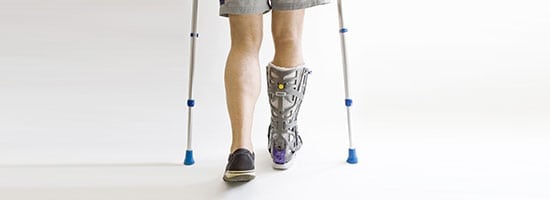
3 Ways to Prevent Orthopedic Injuries
Orthopedic injuries do not discriminate. Whether you are a gym instructor, an active teen, or a senior, everyone is at a risk of suffering a muscle or joint related injury. However, some people are at an even higher risk than others. Given the fact that it is a lot easier and even cost-effective to prevent such injuries than treating them, it is important that you identify whether your case is a high-risk factor and what you can do about it.
High Risk for Orthopedic Injuries
Ideally, most orthopedic injuries are as a result of a weak musculoskeletal framework. This means that if your core muscles and bones, especially joint bones, are weak then you are at a higher risk of sustaining orthopedic injuries from simple lifting tasks or just bending your body. Additionally, any other bodily behavior or practice that negatively impacts on your muscles or bone density can also increase your chances of contracting these injuries.
Therefore, smoking and obesity further increase your risk of suffering musculoskeletal injuries. Among women, decrease in estrogen levels during menopause significantly impacts your bone density, further exposing you to orthopedic injuries.
Preventing Orthopedic Injuries
- Regular physical activity:
In this context, regular exercise means working on strengthening your core muscles. This is not just the biceps; core muscles refer to all the muscles that support your spine, hips and musculoskeletal structures. However, you have to ensure that you are exercising correctly. Before taking on gym equipment, ask for guidance on proper use. Additionally, exercises should not be painful; whenever you feel pain as a result of an individual technique leave the equipment and try a less strenuous one.
- Eating right:
During your teens and early 20s, your bone density reaches its peak from which stage it starts to gradually decline if not reasonably tended. Right from your childhood, it is advisable that you eat bone density enriching foods, with adequate calcium and vitamin D, and maintaining this habit throughout life.
- Do everything in moderation:
Are you thinking of starting a new physically demanding hobby or adopting a more aggressive fitness routine? While either may be a good idea, embrace moderation in transition and give your body enough time to adjust to such changes. Don’t just jump into action, warm up to an activity and when done, give it time to cool down.
It is advisable that you consult your orthopedic surgeon first, particularly when it comes to healthy exercises.

